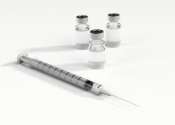Researchers reduce bias in pathology AI algorithms and enhance accuracy using foundation models
Advanced artificial intelligence (AI) systems have shown promise in revolutionizing the field of pathology by transforming the detection, diagnosis, and treatment of disease; however, the underrepresentation of certain patient ...
Apr 18, 2024
0
64









